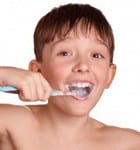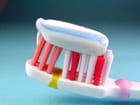 Mouth ulcers are quite common in most people in Leeds, though that doesn’t make them any less painful when they erupt. They are generally caused by damage; such damage can stem from having a sharp filling or tooth, bad use of the toothbrush or an accidental biting of the cheeks- certain foods have also be known to cause ulcers to erupt as has specific types of medication. As sore as they can get, they do often heal themselves, though that doesn’t help the discomfort in the meantime. You should try to avoid using a hard tooth brush when brushing your teeth and best to eat soft, easy to chew foods until the ulcer disappears. During this time, you can get soothing gels from your chemist (who will also advise you what to choose) that speed up the healing process. After brushing, rinsing with warm salty water is also soothing and before you sleep, rub plenty of gel into the ulcer. Ulcers do have a habit of repeating but generally this dies off over time (ulcers are more common in children) but if they constantly re-offend, it could indicate something more serious going on so needs to be checked out immediately.
Mouth ulcers are quite common in most people in Leeds, though that doesn’t make them any less painful when they erupt. They are generally caused by damage; such damage can stem from having a sharp filling or tooth, bad use of the toothbrush or an accidental biting of the cheeks- certain foods have also be known to cause ulcers to erupt as has specific types of medication. As sore as they can get, they do often heal themselves, though that doesn’t help the discomfort in the meantime. You should try to avoid using a hard tooth brush when brushing your teeth and best to eat soft, easy to chew foods until the ulcer disappears. During this time, you can get soothing gels from your chemist (who will also advise you what to choose) that speed up the healing process. After brushing, rinsing with warm salty water is also soothing and before you sleep, rub plenty of gel into the ulcer. Ulcers do have a habit of repeating but generally this dies off over time (ulcers are more common in children) but if they constantly re-offend, it could indicate something more serious going on so needs to be checked out immediately.
















